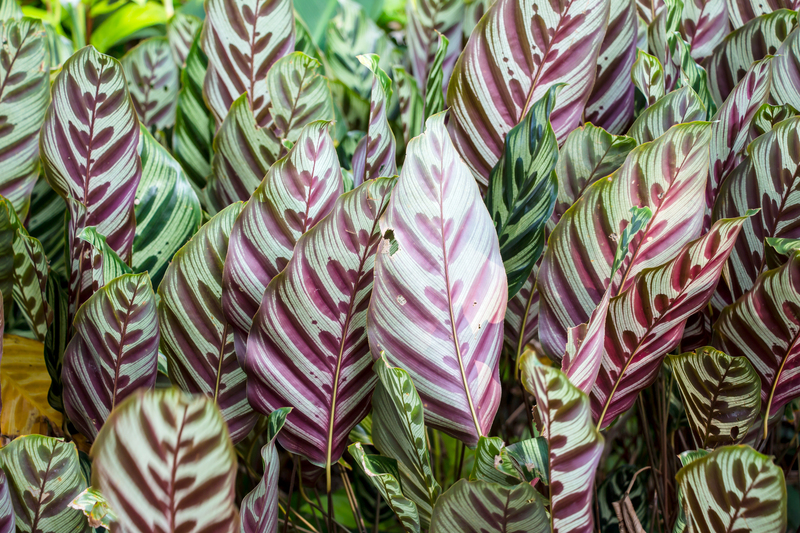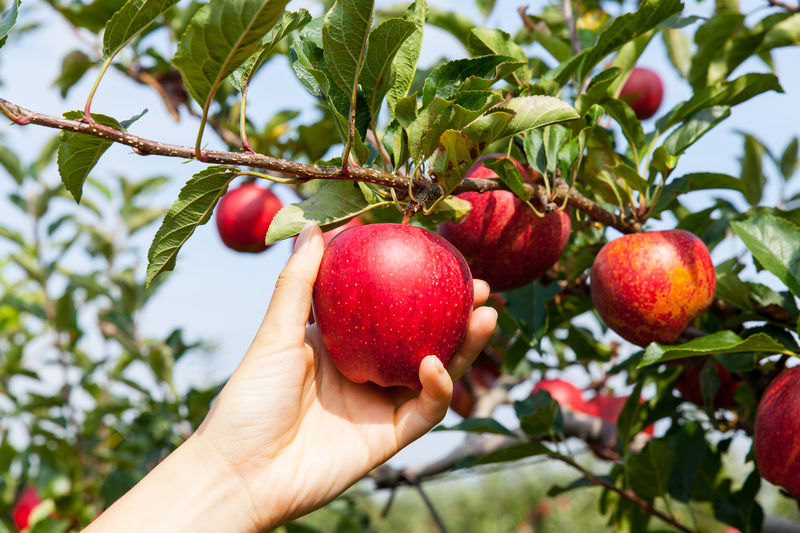Best Season for Adding Manure to Your Garden
Posted on 26/05/2024
Manure is often referred to as "black gold" in the gardening world, enriching the soil with essential nutrients that significantly improve plant growth and yield. However, timing is crucial when it comes to adding manure to your garden. Applying it during the wrong season could lead to nutrient runoff, unwanted weed growth, or even damage to your plants. So, when is the ideal time to add manure? In this article, we will explore the best season for adding manure to your garden, along with some useful tips, benefits, and drawbacks. Let's dig in!
Why Timing Matters
The timing of manure application can greatly influence its effectiveness. Applying manure at the right time ensures that plants can absorb the nutrients efficiently and minimize the risk of nutrient leaching or runoff. The following sections offer a detailed look at the different seasons and their suitability for manure application.

Spring: Preparing for the Growing Season
Spring is a popular season for adding manure, mainly because it prepares the soil for the upcoming growing season. As the soil warms up, the microorganisms in the manure become active, breaking down organic matter and releasing nutrients such as nitrogen, phosphorus, and potassium.
- Advantages: Enhances soil fertility right before the planting season.
- Disadvantages: Fresh manure could burn young plants; need to wait a couple of weeks before planting.
Spring is ideal for well-composted manure rather than fresh manure to prevent damaging young seedlings. Ensure the manure is worked into the soil at least a few weeks before planting.
Summer: Boost During Growing Season
The summer months are generally too late for adding fresh manure, given that manure needs time to decompose and be absorbed by plants. However, well-composted manure can still be beneficial if applied as a side dressing to provide a mid-season nutrient boost for your crops.
- Advantages: Offers additional nutrients during a high-demand period
- Disadvantages: Risk of nutrient burn if not applied correctly; chance of attracting pests.
If you decide to add manure in the summer, use composted manure to avoid burning the plants and ensure even application to prevent any potential issues.
Fall: Preparing for the Next Year
Many gardeners consider fall to be the best season for adding manure. Applying manure in autumn allows ample time for it to decompose, enriching the soil over the winter months. By the time spring arrives, the soil is well-prepared to support new plant growth.
- Advantages: Long decomposition period; soil is enriched by spring.
- Disadvantages: Nutrients might leach away if winter is too wet; requires foresight and planning.
Spread the manure evenly over the garden and till it into the soil to maximize its effectiveness. Cover crops can also be planted to reduce nutrient leaching and improve soil structure.
Winter: Limited Gardening Activity
Winter is generally not recommended for adding manure since the cold temperatures inhibit microbial activity and slow down decomposition. Additionally, heavy rain or snowmelt could wash away the nutrients before they get absorbed into the soil.
- Advantages: May still work in mild climates with proper cover.
- Disadvantages: High risk of nutrient runoff; microorganisms are less active.
In regions with mild winters, manure can still be added with the addition of protective measures such as mulching to prevent runoff and erosion.
Pros and Cons of Adding Manure
Pros
- Enriches soil with essential nutrients
- Improves soil structure and water retention
- Encourages healthy microbial activity
- Reduces the need for synthetic fertilizers
Cons
- Fresh manure can burn plants if not composted
- Potential for weeds and pathogens
- Requires careful timing to avoid nutrient runoff
- Can be labor-intensive to apply
Tips for Applying Manure
Compost Manure: Always aim to use well-composted manure to reduce risks associated with pathogens and nitrogen burn.
Test Your Soil: Conduct a soil test to determine nutrient needs and adjust manure application accordingly.
Even Distribution: Spread the manure evenly across your garden to ensure uniform nutrient distribution.
Till It In: Work the manure into the soil to increase its effectiveness and minimize surface runoff.
Use Cover Crops: Plant cover crops to hold nutrients in place and improve soil health during offseason.

Key Takeaways
- Spring and fall are generally the best seasons for adding manure to your garden.
- Always compost manure to reduce potential risks and enhance nutrient availability.
- Evenly distribute and till manure into the soil for maximum benefits.
- Protect your soil with cover crops, especially during winter.
Conclusion
Adding manure to your garden is a powerful way to enrich the soil and promote healthy plant growth. While spring and fall are the optimal seasons for application, understanding the specific needs of your garden and climate will help maximize the benefits. Whether you're a seasoned gardener or a novice, timing your manure application correctly can lead to a more fertile garden and more bountiful harvests. By following the tips and guidelines provided, you can turn manure into a valuable ally in your quest for a thriving, productive garden.
Latest Posts
Inspiring Ways to Refresh Your Garden This Autumn Season
A Step by Step Guide to Keeping Artificial Grass Fresh and Spotless
Creative Planting Ideas to Design a Serene Zen Oasis







